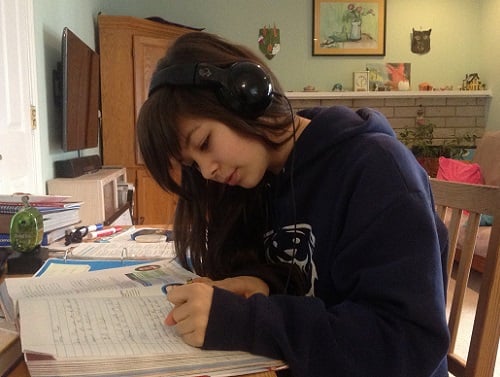
Don’t miss these 5 blog posts on writing with teens:
Writing Starts Off the Page: Saturation and Incubation
You don’t want to ask for writing before your kids are good and ready to spill over onto the page. All of those writing books that give your kids topics are a waste of time (unless you happen to be one of the lucky ones with a child who loves to write and just needs a gentle nudge and away she goes!). Topics don’t generate writing. Having something to say does…
Writing with Teens: How to Begin
Without an essay guide, you might feel you can’t even begin to teach your students to write them. Hogwash. Let’s look at some ways that you can start essay training right now…
Essays: Not Just a Gateway to College
The word essay means “to try.” It comes from the Latin root. (In French, the word “essayer” is the verb “to try, to attempt.”) I think it helps to remember that an essay is an attempt, it’s your “best shot” at looking at the materials and giving a reaction (sometimes a strong opinion, sometimes an exploration of the issues, sometimes how that material relates to your life and background, your experiences and beliefs)…

Brave Writer’s Guide to Writing for Exams
I remind students to make a plan, follow the plan and stick to the plan because initially it is tempting to run off after some mental flurry of activity and think that is the same as good writing. It usually isn’t. Clarity and organization trump flights of fancy in timed assessment essay writing…
Why Academic Writing Doesn’t Come Naturally
Essay writing is like learning a brand new sport while playing the game. There are steps to take that make the process less daunting and that will prepare your kids to be successful with less stress. The actual format itself is not difficult to teach or understand. Learning how to bend the essay to the writer’s purpose, to make the essay form work for the writer instead of against him is something all together different…
Enjoy!
Check out Brave Writer’s Help for High School. It’s a self-directed writing program for teens that both teaches rhetorical thinking in writing, as well as the academic essay formats for high school and college.























